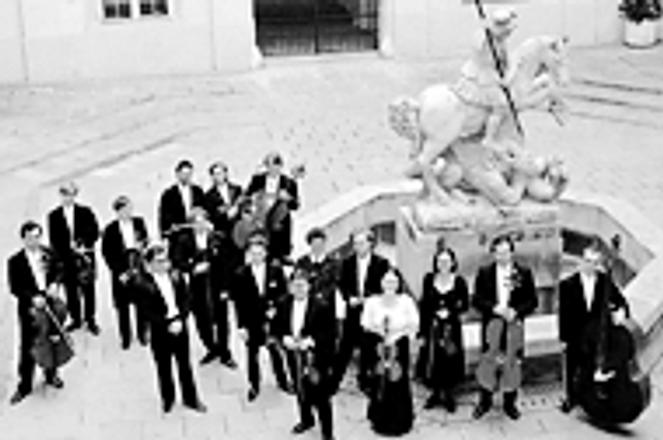BRATISLAVA Chamber Soloists will perform on February 15.photo: Courtesy of Hudobné centrum
MUSICOLOGIST Pavol Polák just returned from the world's largest festival of Wolfgang Amadeus Mozart's music, annually held in the genius's birthplace, Salzburg, Austria, to open the festival he organises in a similar spirit in Bratislava.
Still full of emotion from listening to dozens of concerts by top international musicians and ensembles devoted to Mozart's music, Polák seemed as if he could talk for hours about his experience. But he did not try to hide his disappointment with being financially unable to bring more of Salzburg's atmosphere into his country.
Nevertheless, the programme of the 7th Mozart Week in Bratislava, which will present some of the composer's less famous or un-known works, looks just as promising as the previous six.
"The programme ranges from sacred to secular music, from chamber to orchestra compositions. And apart from Mozart, it will also follow tradition and introduce [the works of] his contemporaries, such as Haydn, who was the biggest composer at that time," said Polák, the festival's body and soul, and the founder of the Mozart Community in Bratislava - one of 84 in the world.
As is tradition, the community asked a Slovak composer to write a work inspired by Mozart, carried out this year by Peter Zagar. His Hommage á Mozart was scheduled to open the festival on the evening of February 8. The unofficial opening, though, was supposed to take place that morning, at the Bratislava church on Župné Square, in a mass featuring Mozart's sacred music.
The programme this week begins on Monday at the Austrian Embassy in Slovakia at 18:00, with a lecture held by Mozart scholar Thomas Hochradner from the Universität Mozarteum Salzburg. The Austrian expert will reveal interesting aspects of Mozart's many letters.
"Mozart wrote so many letters that he could have easily made a career as a writer," Polák said with a smile.
Concerts by the Slovak Chamber Orchestra of Bohdan Warchal will take place at 19:00 at the Slovak Philharmonic on February 12 and 13. With violoncellist Ľudovít Kanta, the orchestra will perform Franz Schubert's Sonata for Arpeggione (aka guitar-cello) and Piano in A Minor D 821, which was arranged by Theodor Platt for violoncello and a string orchestra.
On February 14, for the first time in the festival's history, visitors can listen to the brass chamber music of Maria Theresia Harmonie, an international ensemble formed by musicians from Austria, Hungary, and Slovakia - countries that formed one empire during the reign of Maria Theresa. The concert starts at 18:00 at the Pálffy Palace on Zámocká Street.
The closing concert on February 15 at 19:00 at the Primate's Palace will present Bratislava Chamber Soloists featuring one of the world's leading bassoon players, Milan Turkovic of Austria, who will also lead the Master's Interpretation Lecture the next day. That day, February 16, there will be a screening at 17:00 at Mladosť cinema of an authentic video record of Mozart's Magic Flute, performed by the Viennese Philharmonic Orchestra and State Opera Choir.
Polák, who considers Mozart's work to be our most universal music, launched this festival to introduce Slovakia to some of the lesser known of the child prodigy's more than 620 works.
"But when I started on my own, I hardly believed the festival would ever enter its seventh year," he said.
Tickets and an exact schedule of the festival can be obtained at the Bratislava Culture and Information Centre at Klobučnícka 2 (tel: 02/5443-1707), or at the Slovak Philharmonic at Palackého 2 (tel: 02/5443-3351).


